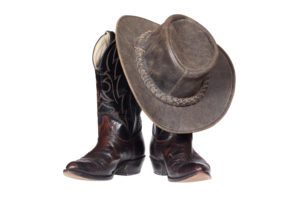So, failure. Ugh, right?
Well, I was feeling like a failure today, like I’d let the team down because an idea of mine went sour. It sucks when that happens, but that’s how it goes sometimes. I found myself retracing my steps, looking at how I got from A to B to C, to what I should have thought of to avoid where things ended up. It comes down to a lack of knowledge, and I’ve learned from it. This led me to think a bit more about failure, and our characters.
Failure is something no one looks forward to or wants to experience. It doesn’t feel good to fight for something and fail. A knot of emotion (frustration, disappointment, anguish, anger) can quickly escalate to darker feelings (shame, self-loathing, humiliation, bitterness, disillusionment, and even jealousy and vengefulness).
However, failure can also lead to positive traits like determination, persistence, resourcefulness and a higher level of discipline. And once on that route, it will lead to change. To evolution. To inner growth, and finally that thing everyone seeks: success.
How each of us deals with upsets, disappointments and failure can say a lot about who we are deep down, and it is the same with our characters. Not only that, but their go-to coping strategies can also help us pinpoint where they are on that path of change (character arc) and open a window into where their weaknesses lie, and what attitudes need to shift to get them on the road to achievement.
Coping (or Not) With Failure
Here are some of the ways I think people (and therefore our characters) tend to react when it comes to failure. Have a read and see which rings true for your hero or heroine.
Blaming Others
For some, failure triggers the blame game. Rather than look within to what they might have done differently or take responsibility for their actions and performance, the blamer makes it about other people: What they did to cause this result. How they let one down. How it was rigged from the start. How one was held back, not helped, how others didn’t play fair.
The lesson that must be learned: be accountable, and be responsible. Whatever comes, whatever the result is, face it and take ownership for your own actions and choices.
Read the full post on Writers Helping Writers
~ * ~
If you liked this article, please share. If you have suggestions for further articles, articles you would like to submit, or just general comments, please contact me at paula@publetariat.com or leave a message below.


 by James Scott Bell
by James Scott Bell Many pulp writers of old made good bank with a hit series character.
Many pulp writers of old made good bank with a hit series character. Think about some of your favorite series – either books or TV shows. Why do you keep going back for more?
Think about some of your favorite series – either books or TV shows. Why do you keep going back for more? 
 Would you like to create memorable characters? Of course you would!
Would you like to create memorable characters? Of course you would!
 If you’re not watching the excellent HBO series
If you’re not watching the excellent HBO series  7 June 2016
7 June 2016
 Susanne Lakin
Susanne Lakin March 2, 2016
March 2, 2016 March 7, 2016
March 7, 2016